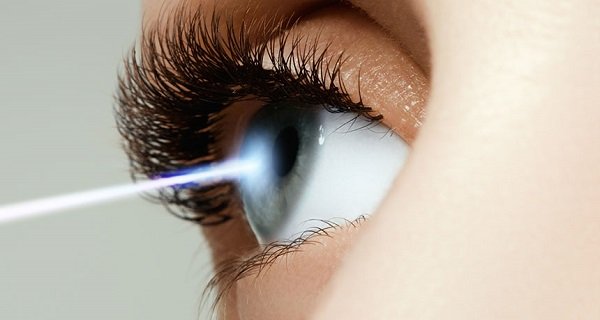
credit
They say the eyes is the light of the body, if the eyes is down, the whole body goes down but if the eyes is healthy your whole body will be full of light. Even scientists have made conclusion that our eyes are a window to our souls. Therefore, good health cannot be said to be complete without good eyes or vision. Your eyes so much about the state of your health. Right? Without doubt, your eyesight is one of the most precious senses, but it is so easy to take the gift of sight for granted, until it starts to fail. Maintaining your eyes can be hard, since we’re used to the bad habits that harm our eyes. It is statement of fact that not everyone can boast of sound eyes. Eye defects or disorders are conditions a lot of people have to deal with. They include nearsightedness (myopia), farsightedness (hyperopia), astigmatism, presbyopia, allergic conjunctivitis (itchy eyes), foreign body in the eye, cataract, eye floaters, dry eye, watery eyes, eye pain, eye lid turning in or out, eye burning, eyelid vibration (twitch), glaucoma, abnormal eye and vision development, black eye, bleeding under conjunctiva, lazy eye, night blindness, eye emergencies, squinting eyes, bulging eye, colour blindness, corneal ulcer, eye migraines. According to scientists, the most common eye defects include
Myopia (shortsighted)
This condition allows the individual to enjoy clear vision up close while objects become increasingly blurred as the individual moves further away from them. Myopia is an eye birth defect. Corrective lenses and some surgical procedure can help manage the condition to enable the individual enjoy vision at a normal range.
Hyperopia (farsighted)
This is like the opposite of Myopia whereby there is difficulty with near vision but far objects can be seen easily.
The use of corrective lenses can manage it so that the individual can enjoy reading or other activities that requires clear view of near objects.
Astigmatism
This is another eye defect. A person dealing with this condition will not have clear vision in many directions. Wearing corrective lenses can compensate for it.
Presbyopia
This condition affects almost everyone at a certain age. When people develop presbyopia, they find they need to hold books, newspapers and other reading materials at arm’s length in order to see prints clearly. When they perform work that requires close scrutiny of the eye such as needlework, handwriting, they may have headaches, eye strains or feel fatigued. Eye glasses with bifocals or progressive additional lenses are the most common correction for presbyopia.
Cataract
This is the clouding of the lens which results in blurred images. Cataracts form because the lens is sealed in a capsule and as old cells die they are trapped in the capsule. With time, this causes a clouding of lens. If the cataracts is not matured enough, eye glasses, contacts lenses and other vision aids can help until the cataract matures (i.e. complete lens clouding) and then treatment is surgery.
Glaucoma
This is a disease caused by an increase in the Intra Ocular Pressure (IOP) of the eye resulting from malfunction in the eye’s drainage system. It can cause irreversible damage to the eye and if left untreated can lead to permanent loss of vision. Not all defects in children are same with that in adults. Even though children have eye defects that could be peculiar to them, they could also suffer from some eye defect adults also suffer from such as myopia and hyperopia; and this is because they are birth defects. However, most common eye defects in children are amablyopia, strabismus, leukocoria, glaucoma, eye trauma, nystagmus, ocular inflammation and systemic disorder that affects the eye. Eye defects like presbyopia do not occur in children. Just like the body, the eyes and vision change overtime. Aging changes in various parts of the eye could result in a number of noticeable differences on how well you see. However, not everybody experiences the same eye defects.
The care of the eyes can never be over emphasized. We feel different things happening to our eyes but we feel its no big deal, well, see above symptoms and know what you really going through with your eyes. The is like the most important to the body. Let’s keep our eyes safe. Thanks!